ICEF 2020 Program
Live
Broadcasting of all the sessions has finished.
On-demand
ICEF 2020 registered participants can view all the past sessions on the virtual meeting website.
The ICEF 2020 sessions are open to the general public for viewing on YouTube.
Registration is not necessary and everyone can view these sessions.
See below for details and viewing sessions of each program.
From Monday, September 28 - Wednesday, October 7 - Thursday, October 8
- Opening Session
-
- Concurrent Session
- Hydrogen Production Technologies and Urban Utilization
- Circular Economy Implementation
- International Climate Cooperation - Moving towards Zero Emission Society
- Blue Recovery - Beyond Zero from the Ocean
- Innovations in Nuclear Energy
- CO2 Removal
- Advancements in Digital and Energy Technologies
- Carbon Recycling
- Behavior and Transportation Demand Change
- Science Based Agriculture
-
- Plenary Sessions and more
- Women for Clean Energy Innovation
- Finance for Innovation
- Roadmap Project
- Road to Beyond Zero
- Closing Session
From Monday, September 28
Concurrent Session
Monday, September 28
12:30 - 13:30
JST (UTC+9)
Hydrogen Production Technologies and Urban Utilization
With increasing sense of urgency towards climate change and air pollution in developed nations, the uptake of low-carbon hydrogen could soon go into full swing. One of the largest obstacles it faces is high cost, which means requiring innovative technologies in production, storage, transportation, and utilization, as well as deregulation in handling hydrogen and increase in demand. Among these, this session will focus on production and utilization of renewable energy-based low-carbon hydrogen as well as the trends around hydrogen utilization including urban utilization.
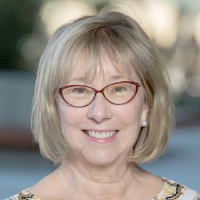
Sally M. Benson
Professor, Department of Energy Resources Engineering,
School of Earth, Energy & Environmental Sciences, Stanford University;
Co-Director, Precourt Institute for Energy, Stanford University

Francois-Regis Mouton
Regional Director Europe, International Association of Oil & Gas Producers (IOGP)

Sunita Satyapal
Director, Hydrogen and Fuel Cell Technologies Office, Office of Energy Efficiency and Renewable Energy, U.S. Department of Energy

Yabe Akira
Fellow, Energy System & Hydrogen Unit, Technology Strategy Center (TSC),
New Energy and Industrial Technology Development Organization (NEDO)
Concurrent Session
Monday, September 28
20:00 - 21:10
JST (UTC+9)
Circular Economy Implementation
In recent years, as awareness of environmental issues has increased, policies and business initiatives aimed at transitioning from linear economies such as production, consumption, and disposal to circular economies that function in a closed system, each of which utilizes repairs and reuse, are actively underway to make consumption sustainable. In this session, we will discuss trends in policy and measures to implement circular economy, business models that voluntarily build circular economy-based effective technological innovation and strategies, and life cycle assessment (LCA) methods and utilization to quantitatively grasp the environmental impact of the entire life cycle for social implementation.

Yasui Itaru
Honorary Adviser, National Institute of Technology and Evaluation (NITE);
Emeritus Professor, The University of Tokyo;
Honorary Adviser, Institute for Promoting Sustainable Societies

Brendan Vidal Edgerton
Director, Circular Economy, World Business Council for Sustainable Development (WBCSD)

Dohi Hideyuki
Director General, Environment and Green Chemistry Unit, Technology Strategy Center (TSC), New Energy and Industrial Technology Development Organization (NEDO)

Lynette Chung
CSO, Head of Global Sustainability,
Covestro AG

Tahara Kiyotaka
Director, Research Laboratory for IDEA, Research Institute of Science for Safety and Sustainability, National Institute of Advanced Industrial Science and Technology (AIST)
Concurrent Session
Tuesday, September 29
20:00 - 21:10
JST (UTC+9)
International Climate Cooperation - Moving towards Zero Emission Society
In emerging countries that continue to develop rapidly over a long period of time, combatting climate change will require promotion of low-carbon innovations taking into account regional characteristics. This session will explore approaches to climate change issues tailored to the needs of emerging countries, and expectations for the private sector by using the cases of environmental cooperation between Japan and other Asian countries.

Ajay Mathur
Director General, The Energy and Resources Institute (TERI);
Member of the Prime Minister’s Council on Climate Change

Nuki Agya Utama
Executive Director of the ASEAN Centre for Energy (ACE)

P. C. Maithani
Adviser, Ministry of New and Renewable Energy, Government of India

Tareq Emtairah
Director, Department of Energy, United Nations Industrial Development Organization (UNIDO)

Tony Clamp
Director of the Green Climate Fund’s Private Sector Facility
Concurrent Session
Wednesday, September 30
8:00 - 9:10
JST (UTC+9)
Blue Recovery - Beyond Zero from the Ocean
Achieving Sustainable Development Goal (SDG) 14 - sustainable development for the oceans, seas, and marine resources - will require international cooperation. Aquaculture, offshore renewable energy, coastal tourism, and marine mineral resources have potential for economic growth and job creation. In the offshore renewable energy field, floating offshore wind projects have been introduced, along with the potential for integration of aquaculture facilities. In this session, we will examine technical and economic issues, countermeasures, international cooperation, and potential ways to contribute to sustainable development in regards to marine technology.

Sunami Atsushi
President, The Sasakawa Peace Foundation (SPF) ;
President, The Ocean Policy Research Institute of SPF ;
Director, SciREX Center, Executive Advisor to the President, National Graduate Institute for Policy Studies (GRIPS);
Guest Professor, Research Organization for Nano & Life Innovation,
Waseda University

Karsten Stoltenberg
Country Manager Japan,
Equinor New Energy Solutions

Mark Leybourne
Senior Energy Specialist, Energy Sector Management Assistance Program (ESMAP), World Bank

Ngedikes Olai Uludong
Permanent Representative of Palau to the United Nations

Yamada Masato
Vice President, Regional Manager,
Asia Pacific, MHI Vestas Offshore Wind
Concurrent Session
Wednesday, September 30
20:00 - 21:10
JST (UTC+9)
Innovations in Nuclear Energy
Venture companies in various countries are promoting research and development of small modular reactors (SMRs) for nuclear power generators, heat utilization applications and nuclear fusion reactors. This session focuses on the latest status and challenges of technology development for nuclear power generation and heat utilization and will discuss the potential of nuclear power as a CO2-free energy source.

Richard K. Lester
Associate Provost, Massachusetts Institute of Technology

Ashley E. Finan
Director, National Reactor Innovation Center

Jill Engel-Cox
Director, Joint Institute for Strategic Energy Analysis (JISEA)
at National Renewable Energy Laboratory (NREL)

Nakatani Eri
Deputy Director, Nuclear Energy Policy Planning Division, Agency for Natural Resources and Energy, Ministry of Economy, Trade and Industry

William Magwood
Director-General,
OECD Nuclear Energy Agency (NEA)
Concurrent Session
Thursday, October 1
8:00 - 9:10
JST (UTC+9)
CO2 Removal
To aim beyond zero emissions in long term, it is necessary to have technology for CO2 removal from the atmosphere. CO2 removal technology such as Direct Air Capture (DAC) is needed to remove CO2 that has been emitted into the atmosphere and will continue to be emitted in the future. In addition, CO2 absorption technology will be needed to sequester and store the CO2 on land such as in farmland and forests, and in the sea such as in seaweed beds and tidal flats. In this session, we will discuss technical and social challenges facing the aim of beyond-zero emissions over the long term based on recent trends in DAC-related technology development, business-based initiatives, and the deployment potential of these technologies.

S. Julio Friedmann
Senior Research Scholar, Center for Global Energy Policy at Columbia University

Lori Guetre
Vice President, Business Development,
Carbon Engineering Ltd.

Roger Aines
Energy Program Chief Scientist for Global Security E Program,
Energy and Homeland Security,
Lawrence Livermore National Laboratory (LLNL)

Shirato Yasuhito
Director, Climate Change Research, Institute for Agro-Environmental Sciences, The National Agriculture and Food Research Organization (NARO)

Tiffany Troxler
Associate Professor, Earth and Environment Department, Florida International University
Concurrent Session
Thursday, October 1
20:00 - 21:00
JST (UTC+9)
Advancements in Digital and Energy Technologies
Today we face the challenge of growing calls for solutions to climate change and other global issues. In this context, we have seen ongoing international debate on designing social systems that will create solutions aligned with the UN’s SDGs. More companies and organizations are currently pursuing SDG-oriented activities, including RE100 and we need to engage various stakeholders in making concerted efforts to change and build sustainable social systems. Advancements in digital and energy technologies promise to contribute significantly to this innovative change but also pose new governance and social-steering challenges. The COVID-19 pandemic is disruptive, but properly directed, the stimulus packages underway to restart economies can leverage effects towards sustainability. The list of negative societal consequences is very long, including loss of education for children, multiple burdens for the many working at home while taking care of children and other responsibilities. Another possible legacy of COVID-19 could be an increase in the challenges to achieving gender equity and empower all women and girls.
This session will discuss innovations in social systems and the utilization of energy technologies driven by changing energy user needs and advancements in digital technologies that support new trends in the post-pandemic future toward gender and equality for all.
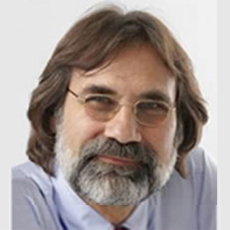
Nebojsa Nakicenovic
Executive Director, The World in 2050 (TWI2050)

Anna Piperal
Managing Director, e-Estonia Briefing Centre, Enterprise Estonia

Iwafune Yumiko
Project Professor, Institute of Industrial Science, The University of Tokyo

Yamazaki Satoshi
Managing Director, Accenture
Concurrent Session
Friday, October 2
8:00 - 9:10
JST (UTC+9)
Carbon Recycling
Even the industrial sector, where emissions are hard to reduce, is entering a major transitional period with efforts ramping up to promote carbon recycling and transition to low-carbon processes. On the other hand, R&D is underway on utilization of recovered CO2 in valuable goods and services such as fuel, concrete, carbonate mineralization, chemicals, carbon raw materials, and transport of CO2 by LNG carriers. Discussion in this session will focus on development trends and issues pertaining to recovered CO2 utilization technologies. There will also be discussion of LCA analysis results, commercialization trends, and readily adoptable measures that can be taken in a short period of time.
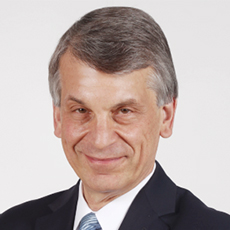
David Sandalow
Inaugural Fellow, Center on Global Energy Policy, Columbia University;
Co-Director, Energy and Environment Concentration, School of International and Public Affairs, Columbia University

A.-H. Alissa Park
Director of the Lenfest Center for Sustainable Energy, Columbia University

Andrea Ramirez Ramirez
Professor, Chair Low Carbon Systems and
Technologies, Faculty of Technology,
Policy and Management,
Delft University of Technology

Jennifer Holmgren
CEO of LanzaTech

Ziqiu Xue
Chief Researcher, CO2 Storage Research Group, Research Institute of Innovative Technology for the Earth (RITE)
Concurrent Session
Friday, October 2
13:00 - 14:30
JST (UTC+9)
Behavior and Transportation Demand Change
This session will address changing consumer behavior to prevent the spread of COVID-19 and its impact on urban transport demand. Additionally, the session will also involve analysis of the ways in which technological innovations, infrastructure development and regulatory arrangements can cope with any effects on CO2 emissions resulting from changing consumer behavior in the urban transport. These session themes will cover both short-term and long-term outlooks.

Georg Erdmann
Retired Professor for Energy Systems, Berlin University of Technology;
President of the Board, KSB Energie AG, Berlin

Aruturo Ardila-Gomez
Global Lead for Urban Mobility and Lead Transport Economist, World Bank

Brian Motherway
Head of Energy Efficiency, International Energy Agency

Hayashi Yoshitsugu
President, The Japanese Association of The Club of Rome
Concurrent Session
Friday, October 2
21:00 - 22:10
JST (UTC+9)
Science Based Agriculture
GHG emissions from agriculture, forestry and land use are equivalent to one-fourth of the world's total emissions, thus shifting to a highly efficient and sustainable agriculture is strongly desired. For efficient and prompt development, the leapfrog agricultural development, which utilizes science based agricultural technologies, is required in developing countries, which account for about 80% of the world’s population. On the other hand, not only technological innovation, but also lifestyle changes such as food loss and GHG emissions from livestock are important in developed countries. This session will explore the future outlook of science based agriculture from the perspectives of both developing and developed countries.
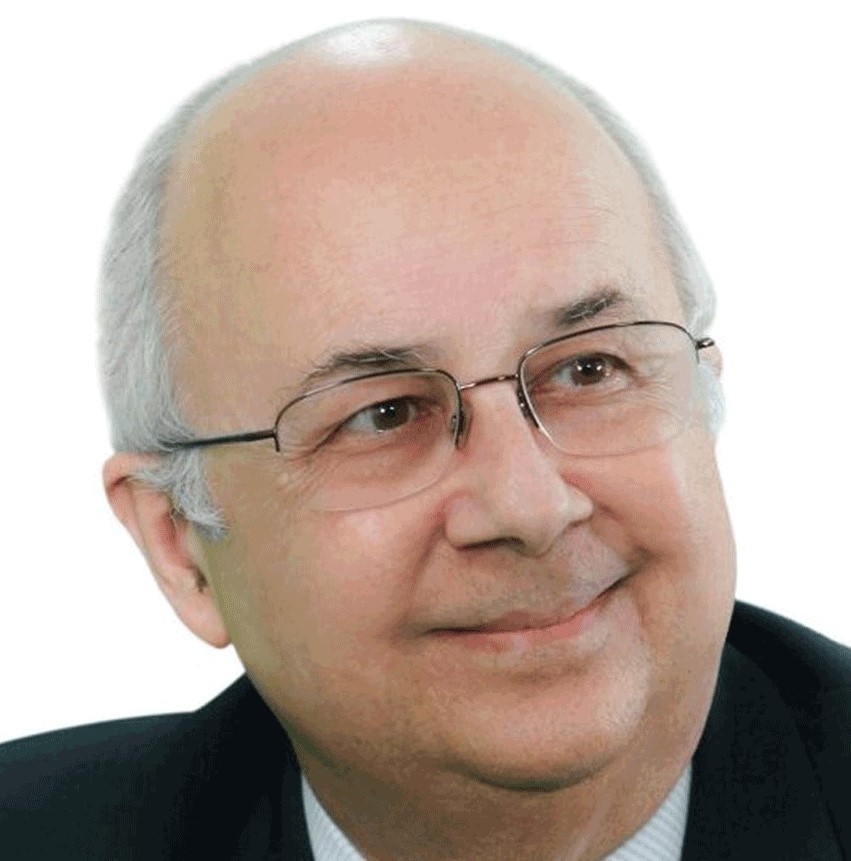
Ismail Serageldin
Emeritus Librarian of Alexandria;
Founding Director of the Library of Alexandria

Chris Argent
Head of Business Sustainability,
APAC Region, Syngenta AG

David Rosenberg
CEO and Co-Founder of AeroFarms

Iiyama Miyuki
Director, Research Strategy Office,
Japan International Research Center for Agricultural Sciences (JIRCAS)

Olivier Dubois
Senior Natural Resources Officer,
Office of Climate, Biodiversity and Environment, FAO
Opening Session
Wednesday, October 7
11:45 - 12:00
JST (UTC+9)
Opening Remarks
Plenary Session
Wednesday, October 7
12:00 - 13:30
JST (UTC+9)
Women for Clean Energy Innovation
In the past, climate change and innovation have been the main focus of ICEF sessions. This year, ICEF aims to clarify the role and significance of gender equality and empowerment of women in promoting innovation, and address how women's empowerment can accelerate the development of climate change countermeasures. This session will focus on the development of a mentoring network that fosters women's abilities, promotion of women's education in developing countries, and the importance of assisting the active participation of women in the combat against climate change.
Moderator
Tanaka Nobuo
Special Advisor, The Sasakawa Peace Foundation (SPF);
Former Executive Director,
International Energy Agency (IEA)

Eija-Riitta Korhola
Delegate of the Consultative Commission on Industrial Change;
Advisor in the EU Affairs

Inkar Kadyrzhanova
Regional gender and climate change adviser, UN Women regional office for Asia and the Pacific

Kathy Matsui
Japan Vice-Chair/Chief Japan Equity Strategist, Goldman Sachs

Laurence Tubiana
CEO, European Climate Foundation

Matsuno Ayaka
Director, Gender Investment and Innovation
Department, The Sasakawa Peace Foundation (SPF)
Plenary Session
Wednesday, October 7
16:00 - 17:30
JST (UTC+9)
Finance for Innovation
In order to simultaneously achieve economic growth and significant GHG emissions reduction, it is essential to consider the vital role of finance. Finance will be required to deploy existing low carbon solutions and to develop new, low-carbon technologies for hard-to-abate sectors. It is also very important to consider the impact of Covid-19, the risks and opportunities that exist in recovery stimulus packages, and also to consider the role that gender diversity can play in the transition. This session aims to share the latest viewpoints from a government and public finance perspective, and also ideas from private finance and companies, as to how best to move forward in major developed economies. All aspects of financing will be considered; from financing innovation and project finance through to asset management and financial asset ownership.

Jon Moore
Chief Executive Officer, BloombergNEF

Aleksandra Tomczak
Member of Cabinet of the Executive Vice President, the European Commission Frans Timmermans in charge of the European Green Deal

Isabelle Laurent
Deputy Treasurer and Head of Funding, European Bank for Reconstruction and Development (EBRD)

Mark Christopher Lewis
Global Head of Sustainability Research,
BNP Paribas Asset Management

Mungo Park
Founder and Chair,
Innovator Capital Limited (ICL)
Side Event
Thursday, October 8
9:00 - 10:00
JST (UTC+9)
Roadmap Project
This roadmap explores ways to use biomass to remove CO2 from the atmosphere and store that CO2 underground or in durable products. We introduce a new term -- biomass carbon removal and storage (BiCRS) ? which we believe better describes this topic than the traditional term -- bioenergy with carbon capture and storage (BECCS).
The roadmap explores questions including:
- What is the technical potential for carbon removal and storage using biomass?
- How can these processes avoid harming ? and ideally promote -- food security, rural livelihoods, biodiversity conservation and other important values?
- What standards and policies would help BiCRS processes achieve their full potential?

David Sandalow
Inaugural Fellow, Center on Global Energy Policy, Columbia University;
Co-Director, Energy and Environment Concentration, School of International and Public Affairs, Columbia University

Colin McCormick
Adjunct Associate Professor,
Science, Technology and International Affairs,
Walsh School of Foreign Service,
Georgetown University

Daniel L. Sanchez
Assistant Cooperative Extension Specialist, Department of Environmental Science, Policy, and Management, University of California-Berkeley

Holly Buck
Assistant Professor of Environment and Sustainability, College of Arts and Sciences,
University at Buffalo, New York

Roger Aines
Energy Program Chief Scientist for Global Security E Program,
Energy and Homeland Security,
Lawrence Livermore National Laboratory (LLNL)

S. Julio Friedmann
Senior Research Scholar,
Center for Global Energy Policy
at Columbia University
Plenary Session
Thursday, October 8
16:00 - 17:30
JST (UTC+9)
Road to Beyond Zero
In order to achieve net zero and more ambitiously, beyond zero emissions (in other words, reducing the CO2 accumulated in the atmosphere) by 2050, technological innovation will be necessary in the fields of electricity, hydrogen and the use of fossil fuels with CCUS. Additionally, there is a need for social acceptance as well as a new social structure that promotes innovation and is dedicated to solving social issues. This session will discuss the current state and challenges of technological and social innovations, their integration, public involvement and finance approach in achieving beyond zero.
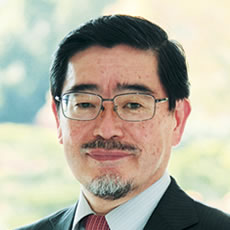
Yamaji Kenji
Senior Vice President/Director-General, Research Institute of Innovative Technology for the Earth (RITE);
Professor Emeritus, The University of Tokyo

Fiona Reynolds
Chief Executive Officer ? Principles for Responsible Investment (PRI)

Manfred Fischedick
Scientific Managing Director,
Wuppertal Institute for Climate, Environment & Energy

Tom Delay CBE
Chief Executive, The Carbon Trust

Yoshino Akira
Director, Global Zero Emission Research Center (GZR),
National Institute of Advanced Industrial Science and Technology (AIST)
Closing Session
Thursday, October 8
17:30 - 18:00
JST (UTC+9)
Closing Remarks/Top 10 Innovations Result Announcement/
Roadmap Announcement/Statement from Steering Committee/Final Thoughts on the Event
Wednesday, October 7 - Thursday, October 8
